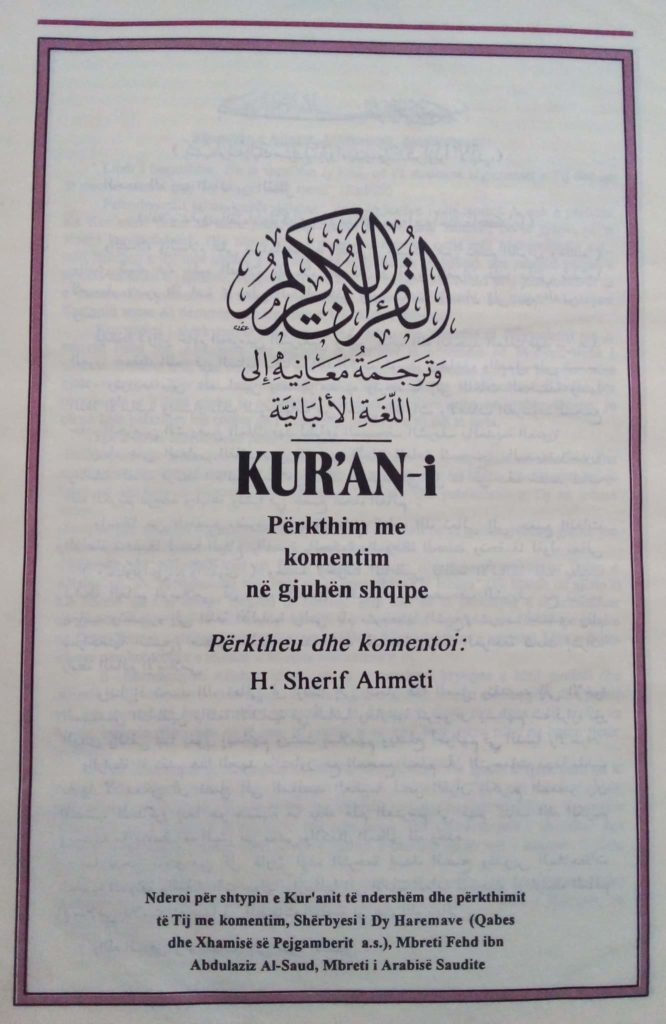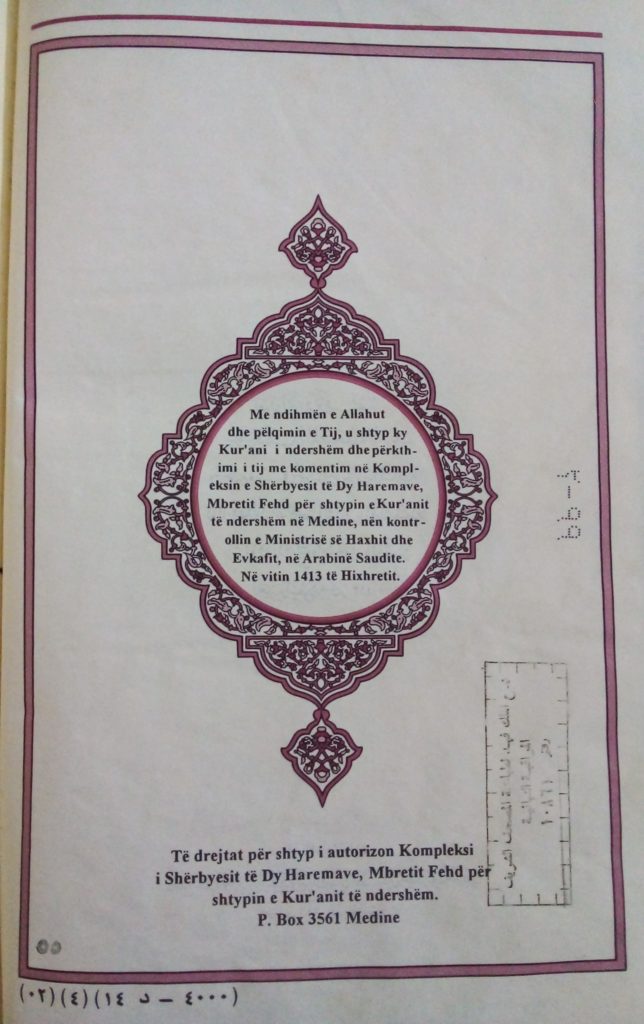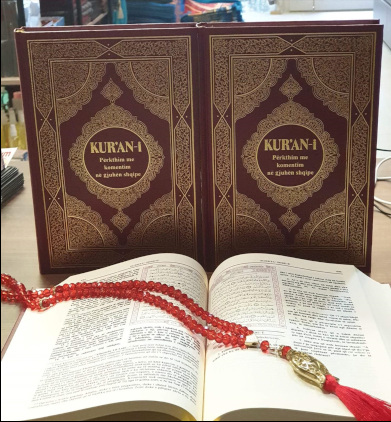Albanian, one of the ‘Islamic languages’ of southern Europe, has some eight million native speakers, a predominant share of whom are Muslims, especially in Albania and Kosovo. These two regions are connected by ethnic and cultural ties, however when it comes to the Islamic religious tradition their recent political realities are very different. While Kosovo, as a part of socialist Yugoslavia (between 1945 and 1992), had at least nominal religious freedom and a basic level of functional religious infrastructure, communist Albania instigated a Soviet-style total ban on religion in 1967 which was lifted only after 1985. It is not surprising then, that the first modern Qur’an translations into Albanian were primarily produced in Kosovo.

The author of one of the first translations, Sherif Ahmeti (1920–1998) was a national activist, educator and scholar of religion. After graduating from a local Islamic school, he started out on a career in the state education system as a teacher of the Albanian language, but was later pressured to leave his position because of his religious affiliations, which did not accord with the predominant secular socialist ideology. After moving to the Alaudin Islamic school (‘Medreseja Alaudin’) in Prishtina (now the capital of Kosovo), Sherif Ahmeti began his long-term religious career, becoming Mufti of Prishtina in 1985. By 1968, he had published a short handbook on Islamic religious practices (‘ilmihal) in Albanian, as well as number of articles and translations, and in the early 1980s he started to work on his own translation of the Qur’an, which was finally published in 1988 by the Kryesia e Bashkësisë Islame (Presidency of the Islamic Community). Soon after that, the second edition was produced by the Libya-based ‘World Islamic Call Society’ in Tripoli. On the back of growing interest in religion in the Balkans after the fall of the communism, and the close attention paid by the Muslim world to the region during the military conflicts it endured in the 1990s, Ahmeti’s translation has also been printed by the King Fahd Qur’an Printing Complex in Medina. Their first edition was published in 1992 and then reprinted in 1994; it was also reissued various times in the 2000s. Typically published under the name ‘The Qur’an and the Translation of its Meanings into the Albanian language’ (‘Kur’an-i përkthim me komentim në gjuhën shqipe’), Ahmeti’s translation is based on the original Arabic text and plenty of Sunni tafsīrs, including classical ones such as those by Fakhr al-Dīn al-Rāzī and Ibn Kathīr, as well as the more modern exegesis by Ṣiddīq Ḥasan Khān al-Qannawjī (1832–1890). It seems that some Bosnian translations were consulted as well, for example those by Čaušević and Pandza (1937) and Bessim Korkut (1977), both of which were quite accessible in Yugoslavia at those times. The 1992 KFQPC edition also includes some introductory material on the history of the Qur’an, and a preface on behalf of the publisher which reveals that the translation was initiated by the Muslim World League, another organization that has been active in the field of translation since its establishment in 1962. According to the introduction, Mansur Halil, an Albanian graduate of the Islamic University in Medina, had had primary responsibility for revising the original translation for publication by the KFQPC.

A comparison of the first edition of 1988 and the 1992 KFQPC edition, it seems that the revisions implemented by Mansur Halil mostly involved the addition of some explanations into the core text and footnotes (including the original Arabic pronunciation of various terms), and a shift from a more literal style to a more explanatory one, a trend typical of many KFQPC translations. The suras are also introduced by short forewords that describe their content, which in some ways is reminiscent of many translations of and commentaries on the Qur’an into Turkish. The names of the suras are not translated at all, just given in Albanian pronunciation of the Arabic. When it comes to the language used, some readers from Albania have commented on the presence of the ‘northern’ dialect of Albanian spoken in Kosovo, which is slightly unusual as the modern standard literary language of Albania is based on the so-called ‘southern’ variant. However, the same feature can be observed in two other Albanian Qur’an translations, also published in Kosovo (Feti Mehdiu, 1985, and Hasan Nahi, 1988). The appearance of new translations in recent decades (Salih Ferhat Hoxha, 2016; Emin İmer, 2018) have challenged the impact of earlier works; however, Sherif Ahmeti’s translation and its foreign reprints still remain a very important monument of the post-communist revival of the Muslim tradition in Albania and Kosovo.
Mykhaylo Yakubovych
